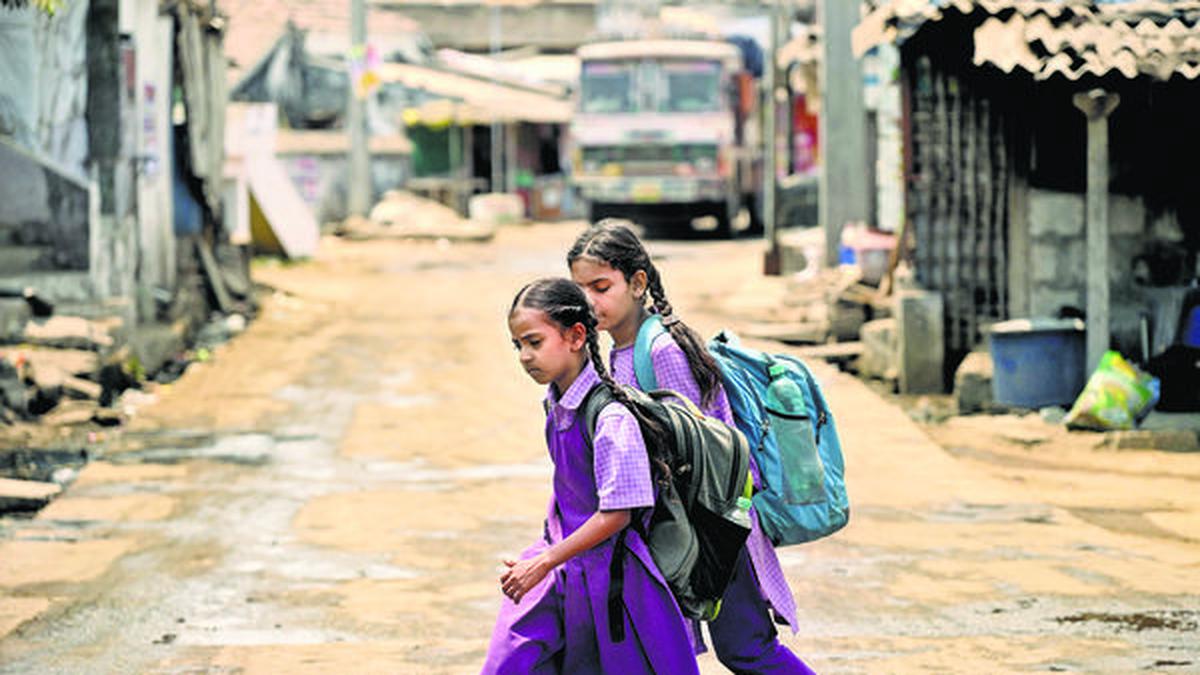
From idyllic charm to industrial nightmare Premium
The Hindu
Gandepalli village in Andhra Pradesh faces pollution and safety issues due to a nearby ethanol factory's operations.
Gandepalli village, about 50 kilometres from Vijayawada, Andhra Pradesh, defies stereotypical village imagery of empty roads, vast expanses of fertile land, and clean air and water. Here, there are more lorries than humans on the main road that measures not more than 15 feet in width. Villagers say there are often minor accidents in Gandepalli that comes under the Kanchikacherla mandal in NTR district.
One incident, involving the death of a schoolboy on January 3, 2017, left villagers enraged. Around 7 p.m. that day, Krishna Rajesh, 12, went out to get dinner on a cycle. On the way, he was hit by a lorry, leading to instantaneous death. In the police complaint filed the next day, the boy’s father Durga Rao claimed that the lorry involved in the accident belonged to a factory in the village. An FIR was registered against the driver, M. Raju, for alleged rash driving and causing death due to negligence.
The case was closed in a year with the driver’s acquittal, since the prosecution witnesses turned hostile. Tearing up while recalling that time in their lives, the boy’s mother, Jaya Lakshmi, says at least four people witnessed the accident. “The defendant lawyer said my son did not go to school and all that he did was loaf around,” adds the bereaved mother, an agricultural labourer who, along with her husband and older son, relocated to a nearby village.
“There is a reason why our repeated complaints against the factory for causing air, dust, and water pollution go unheard,” says a resident, requesting anonymity, even as he alleges that the number of unreported incidents involving the factory could be higher.
The factory in question is Sentini BioProducts Pvt. Ltd., which according to its website, has a production capacity of 200 kilolitres per day (KLPD) of extra neutral alcohol (ENA), a type of ethanol, and 120 metric tonnes (MT) of animal feed supplement.
Set up in 2008, the factory at first was a distillery with a production capacity of 125 KLPD, which was increased to 150 KLPD in 2017. In April 2023, it received environmental clearance for setting up a separate ethanol plant of 200 KLPD, which, the company said, would cater to the Central government’s Ethanol Blended Petrol (EBP) programme.
Launched in 2003 for the sale of 5% EBP in nine States and four Union Territories, the programme is being touted by the Centre as the way forward for the country as it reduces dependency on fossil fuels. At present, the ethanol-petrol blend has gone up to 10%, but the Centre has set a target of increasing this to 20% by 2025, says a Niti Aayog report released in 2021.













